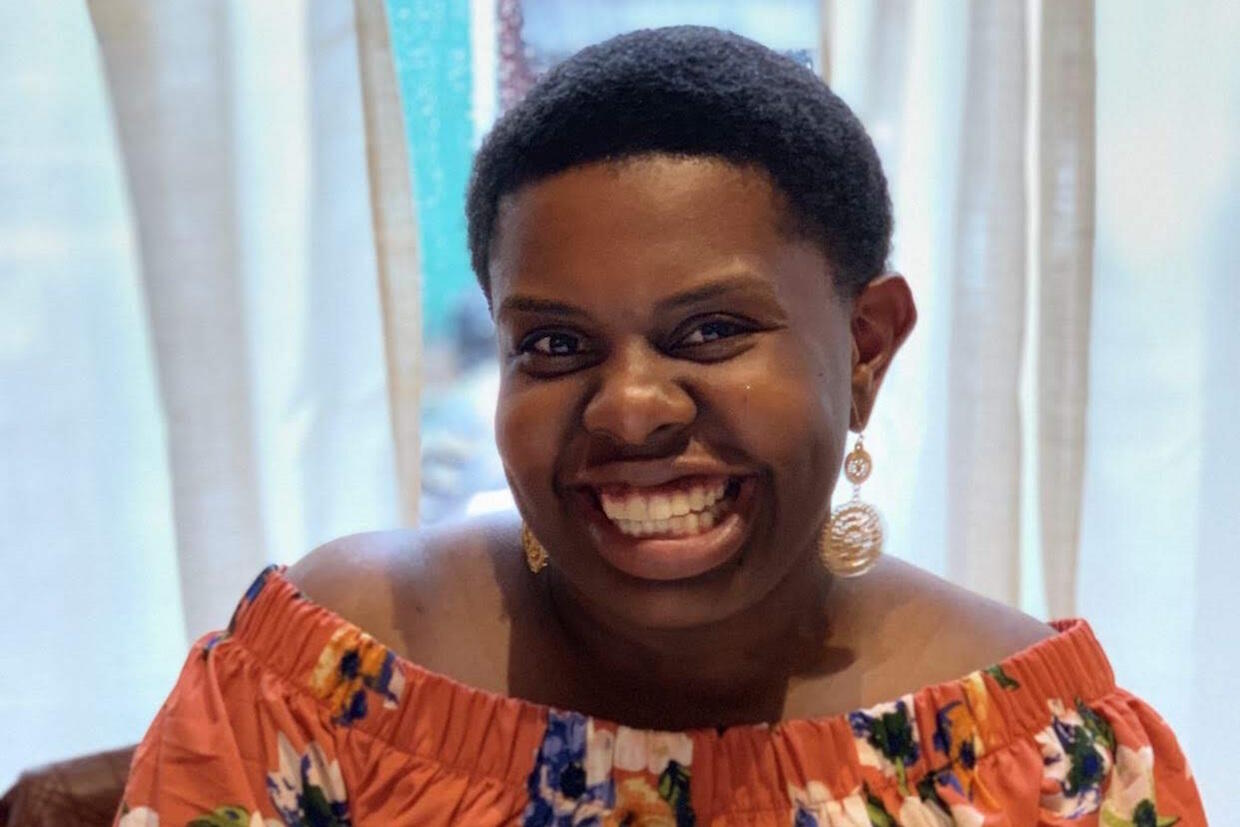
April 29, 2020
How do alternative schools lead to positive outcomes for at-risk students?
VCU student Alisha Robinson undertook a research project in a Virginia alternative school with a goal of improving students’ lives and education.
Share this story
Though many of VCU’s annual Research Weeks events have been canceled due to the COVID-19 pandemic — including the annual Poster Symposium for Undergraduate Research and Creativity — the university is curating a digital archive and slideshow of undergraduate research posters. The deadline for submissions is June 1. Across VCU, students continue to hone their burgeoning research skills. These are some of their stories.
Alisha Robinson, a senior in the Virginia Commonwealth University School of Social Work, set out to study alternative education programs and how they can lead to positive outcomes for students who have been expelled or suspended long-term from other schools.
Robinson’s goal was to understand how alternative schools can help at-risk students — information that could then be applied to create new intervention programs that improve student engagement and reduce dropout rates.
As part of her research project, “Strengthening Student Engagement in Alternative Schools through Research,” Robinson spent time at a Virginia alternative school, observing high school classrooms, holding meetings with stakeholders and leading focus groups with students. However, as the research progressed, Robinson found her focus needed to shift.
“Despite the initial research being halted, ample time was still spent in the school environment to build rapport with students and staff,” she said. “Through that period of time my findings shifted to lessons learned about conducting community-engaged research. I found that conducting research with vulnerable populations requires an established rapport that may not be fully made throughout the time frame of the research project.”
When doing community-engaged research, she found that the goal must be to understand, not fix. “In addition, I found that one must be flexible in conducting research within systematic institutions as interactions within the school were based on their availability and time frame,” she said.
Robinson is a student fellow in VCU’s Academic Scholars Program in Real Environments, or ASPiRE, in which students connect with community leaders, nonprofit organizations, government agencies and schools; address local, regional, national and international community issues; and gain real-world experience to prepare for life after college.
Her research and work in the alternative school was conducted alongside ASPiRE faculty fellows Ashlee Barnes, Ph.D., of the L. Douglas Wilder School of Government and Public Affairs and Jamie Cage, Ph.D., and Nicole Corley, Ph.D., of the School of Social Work.
“Alisha was very careful and deliberate with how she approached her work. She always made sure to allow the needs of the school and the students to guide her interactions. Such thoughtfulness afforded Alisha the opportunity to build rapport with the students and teaching personnel at the school,” said Cage, an assistant professor in the School of Social Work. “This approach will benefit her as she continues researching this line of inquiry through her social work education. It will allow her to build the authentic trust needed to work alongside students and teaching personnel, to understand and address students’ educational needs.”
“Alisha always approached her work earnestly and with thoughtful curiosity,” added Corley, an assistant professor in the School of Social Work. “She positioned herself as a learner interested in understanding better the experiences of the young people in this space and those who worked there. Her line of inquiry is critical to being able to carefully and effectively support students in alternative settings and their families. I look forward to seeing how Alisha will further her line of research and apply them in the field of social work.”
Robinson was inspired to study student engagement in alternative schools after working at the school for a project supported by a Community-Engaged Research Fellowship, part of a partnership between the VCU Center for Community Engagement and Impact and the VCU Undergraduate Research Opportunities Program.
“In the U.S public school system, we know that students enrolled in alternative school systems represent some of the most vulnerable youth,” she said. “Youth within these school systems have a high risk of dropping out of school for various reasons. However, from looking at the very limited research about alternative school settings, higher levels of student engagement served as a protective factor and positively impacted educational attainment.”
The biggest challenge with the research project, Robinson said, was reminding herself she was in the school as a researcher, not as a social worker.
“When problems arose between students, I was not able to assist at as great of a capacity as I would have liked,” she said. ”As an aspiring school social worker, I found that to be challenging.”
Robinson’s career goal is to work as a school social worker so she can help students and their families overcome educational, environmental and social challenges. “However,” she added, “I have always had an interest in community engagement and can possibly see myself being a director of a nonprofit focused on supporting communities.”
Subscribe to VCU News
Subscribe to VCU News at newsletter.vcu.edu and receive a selection of stories, videos, photos, news clips and event listings in your inbox.









